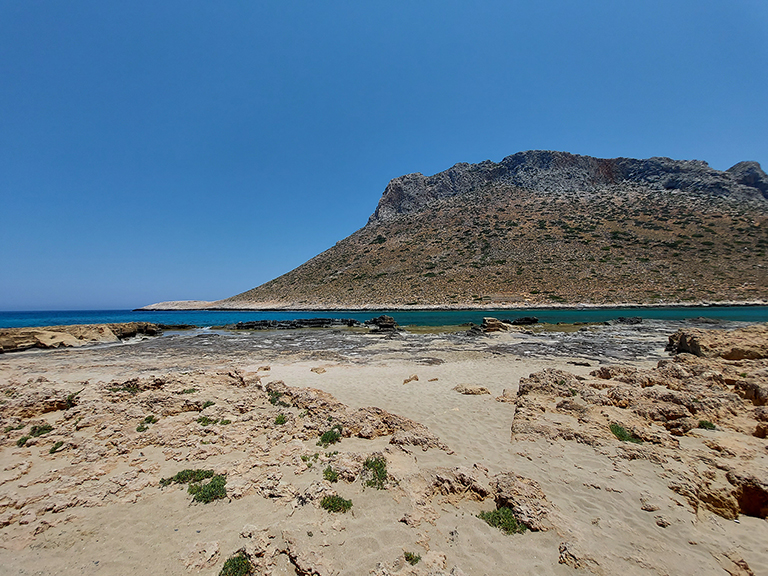
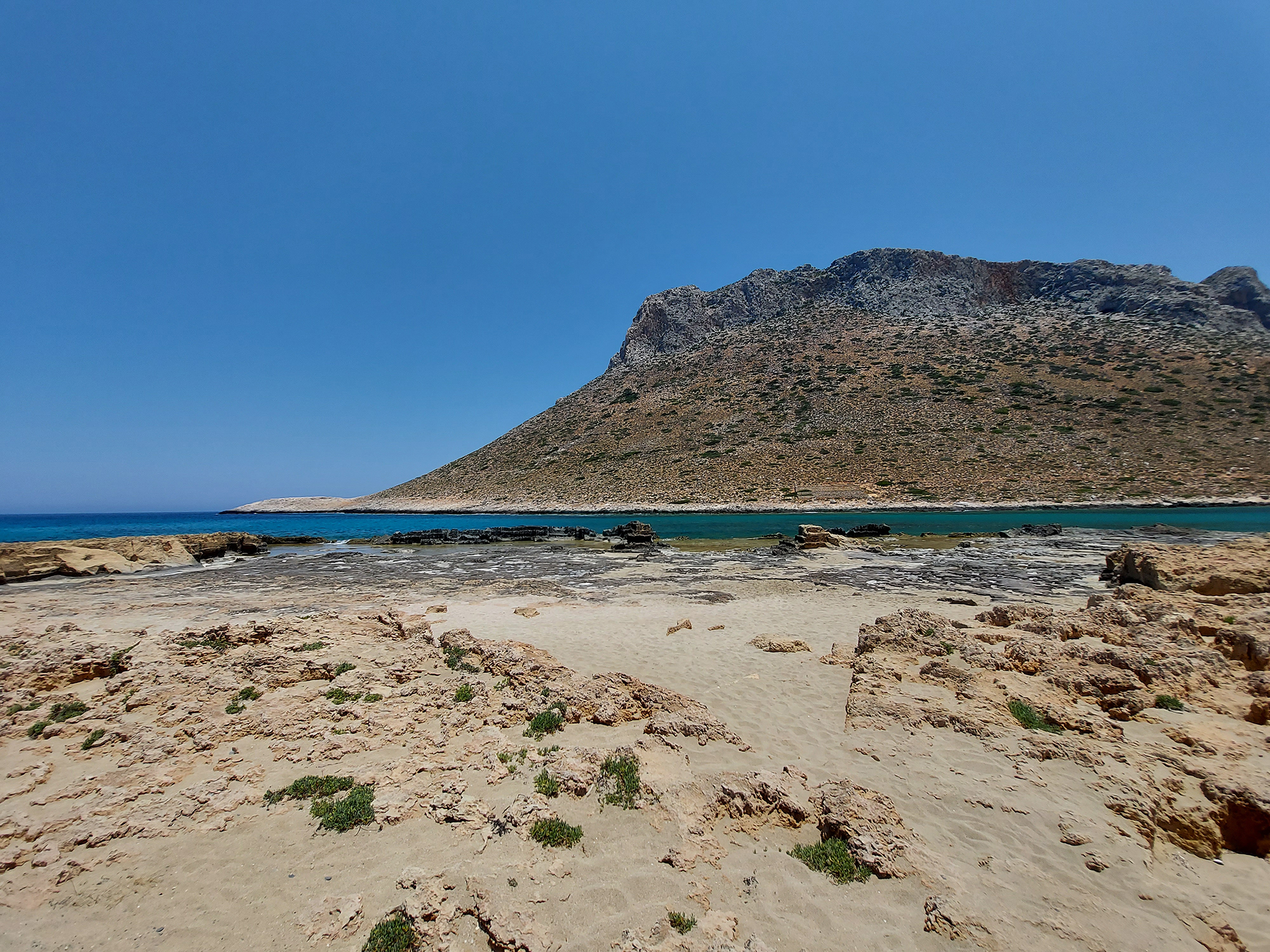
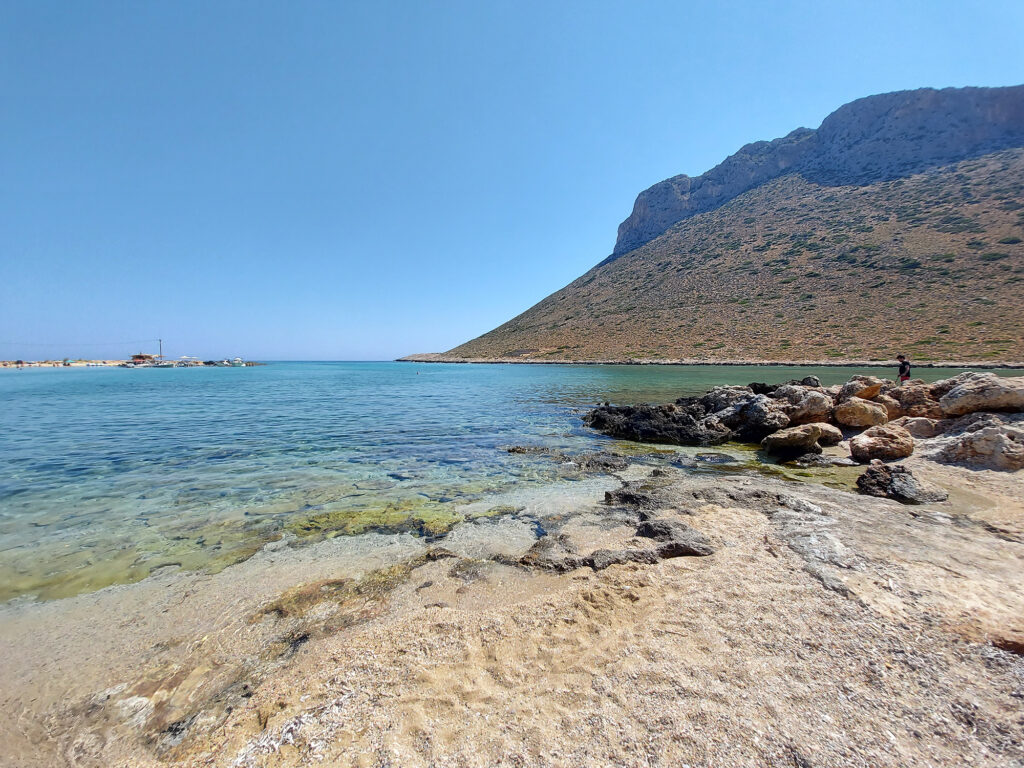
Stavros town is near the famous Chania town, where you can find Zorba the Greek beach.
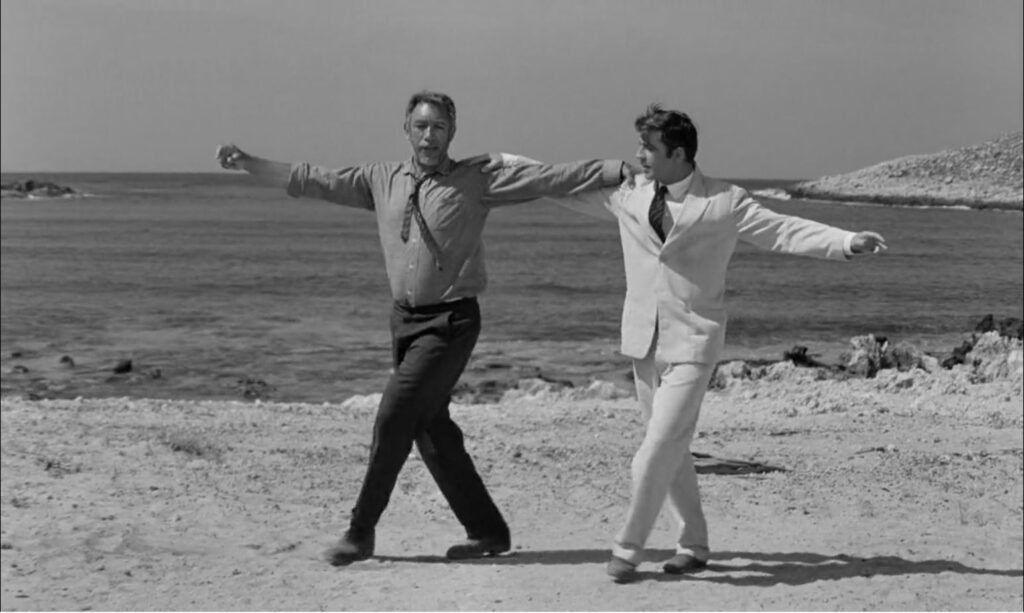
The beach became well-known for a scene in the 1964 movie Zorba the Greek, where Anthony Quinn and Alan Bates dance the popular Greek dance Sirtaki.
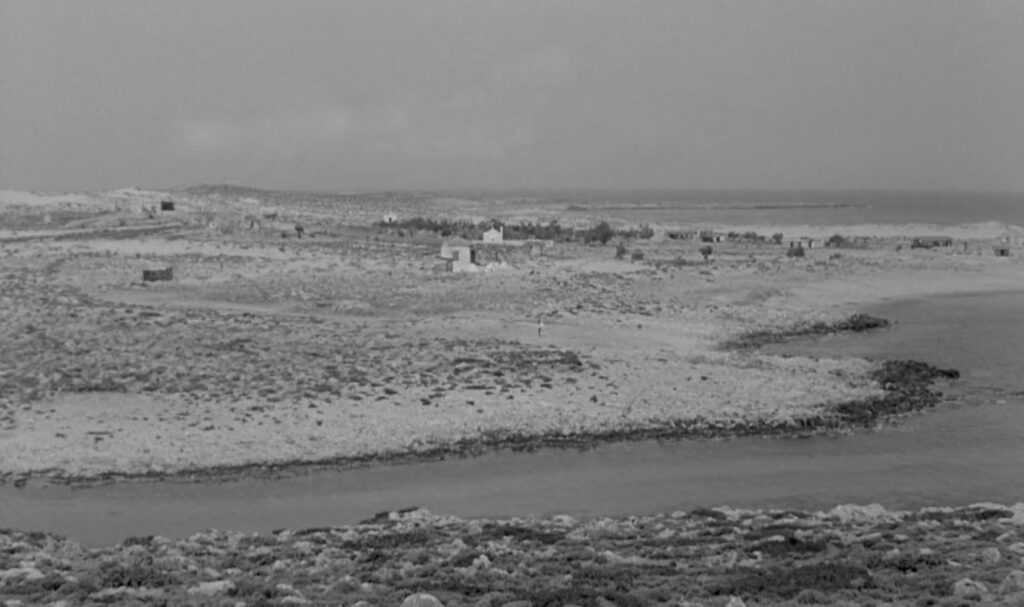
In 1964, the place was a small and poor fishing village.
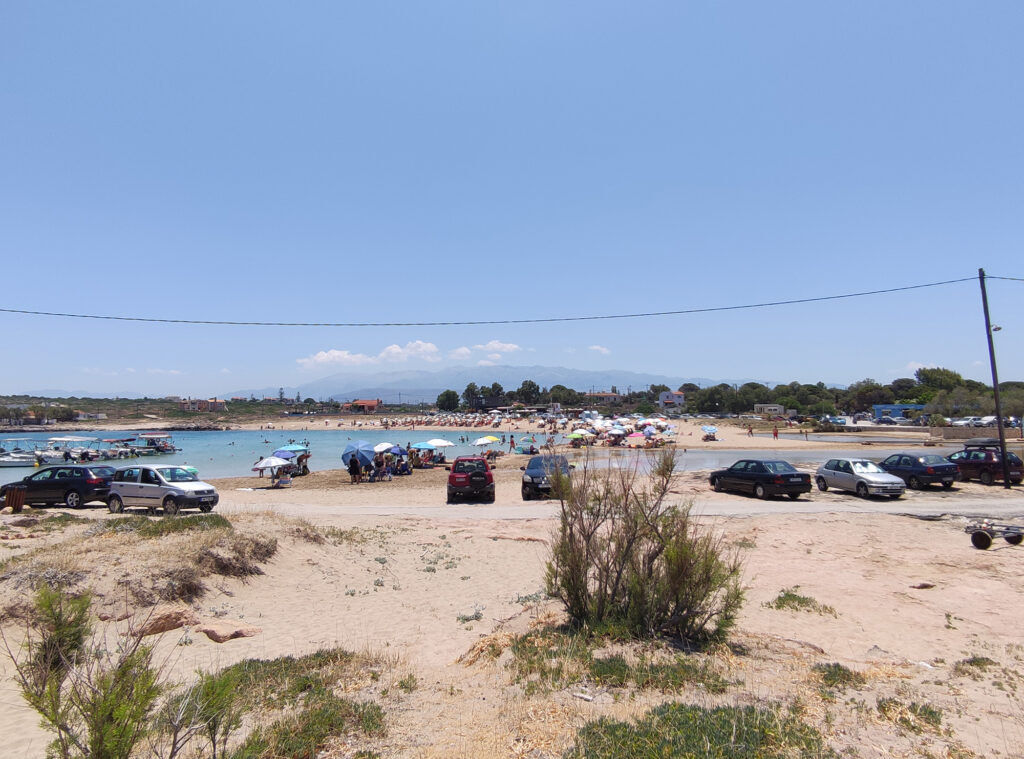
Today it is a popular tourist resort with hotels and restaurants.
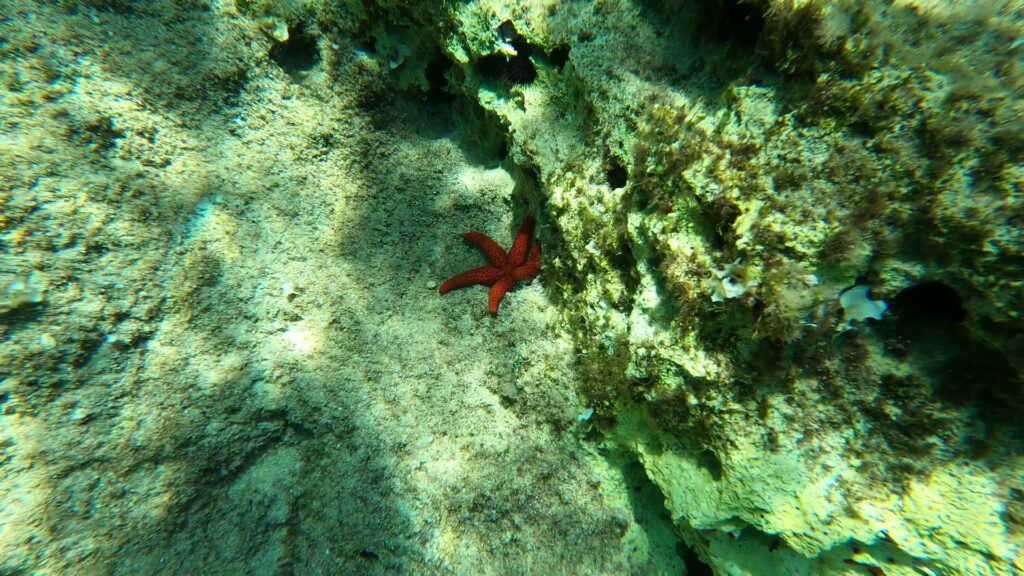
In the sea one red star is showing off.
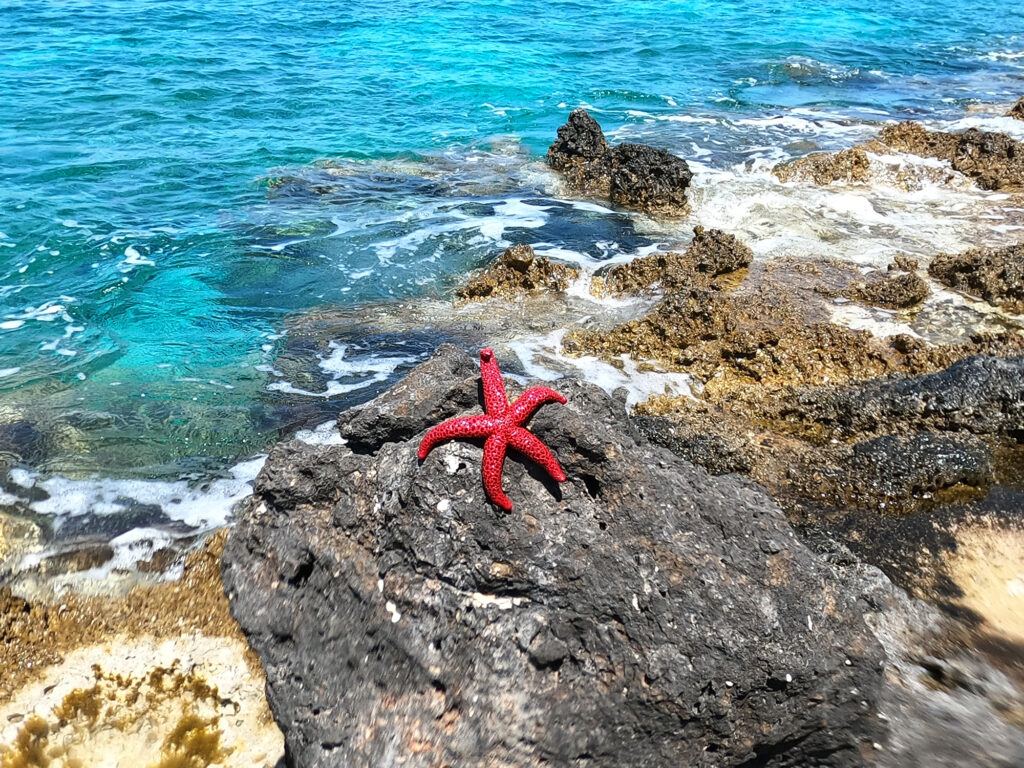
Starfish are part of a group of animals called echinoderms, along with sea cucumbers and urchins. They are hunters and like to eat shells and snails. When they find their prey, they push out their stomach and start digesting their meal outside of their body. Starfish have five arms that are evenly spread out from the centre of their body.
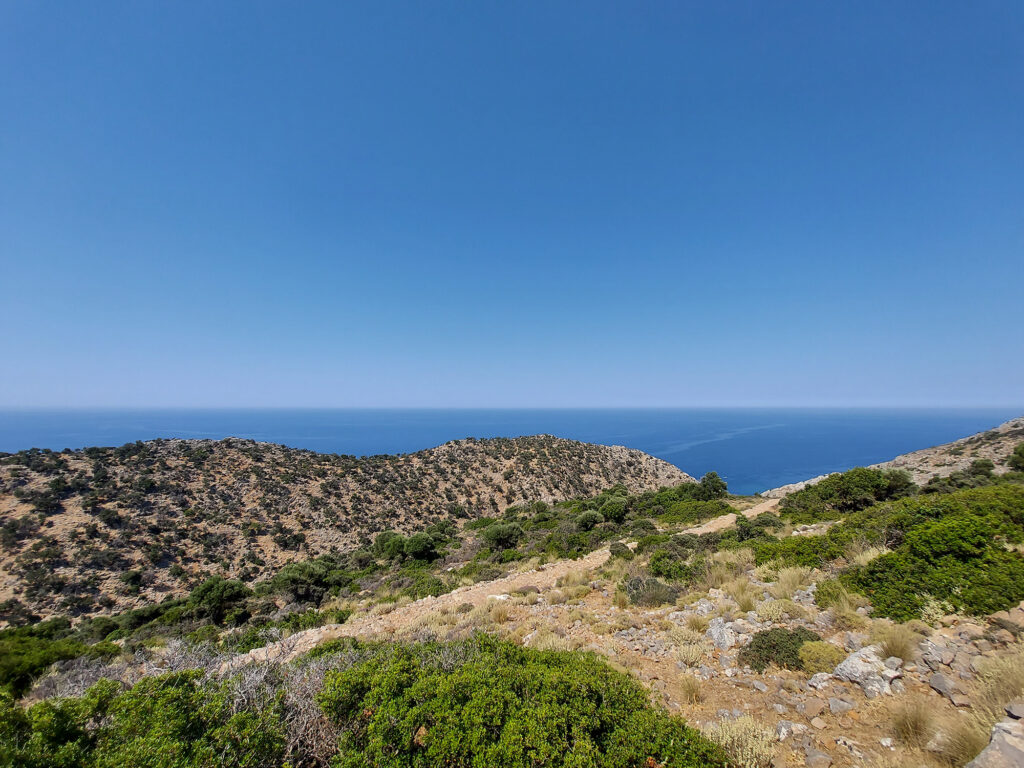
Stavros is located on the Akrotiri peninsula, which is known for its numerous monasteries.
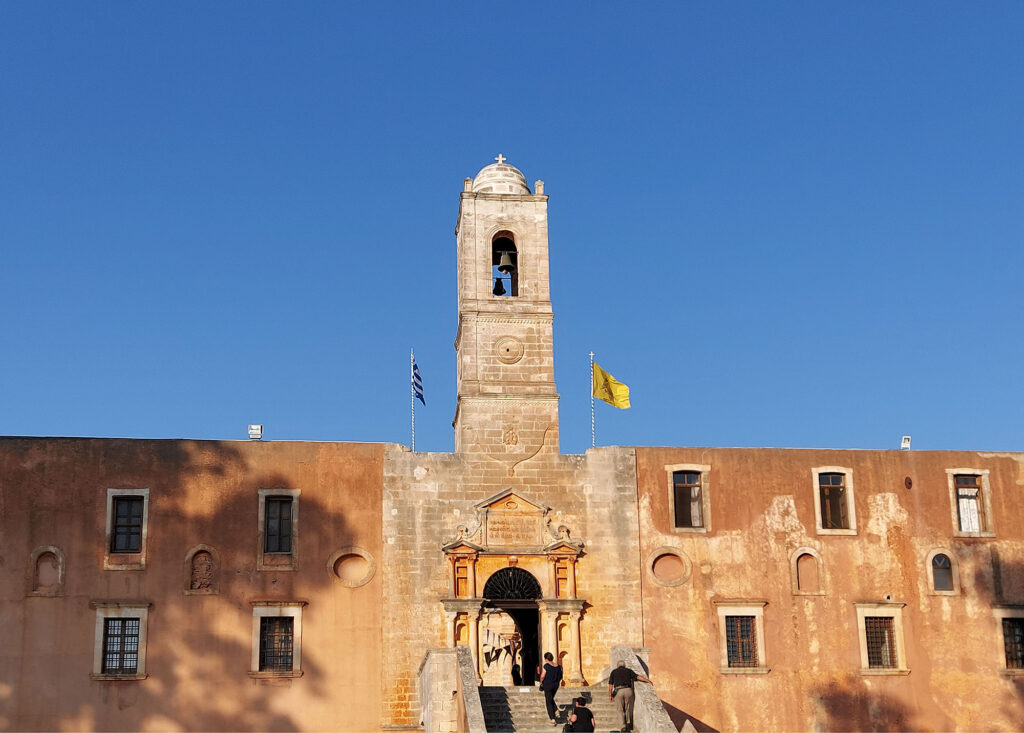
One of the most well-known monasteries is Agia Triada, meaning Holy Trinity, constructed in the 17th century by a Venetian family before the Turks came to the island. Despite being Catholic, the family was part of the Orthodox Church. It is intriguing that the monastery was designed in a combination of Byzantine and Renaissance styles, which is uncommon in architectural history.
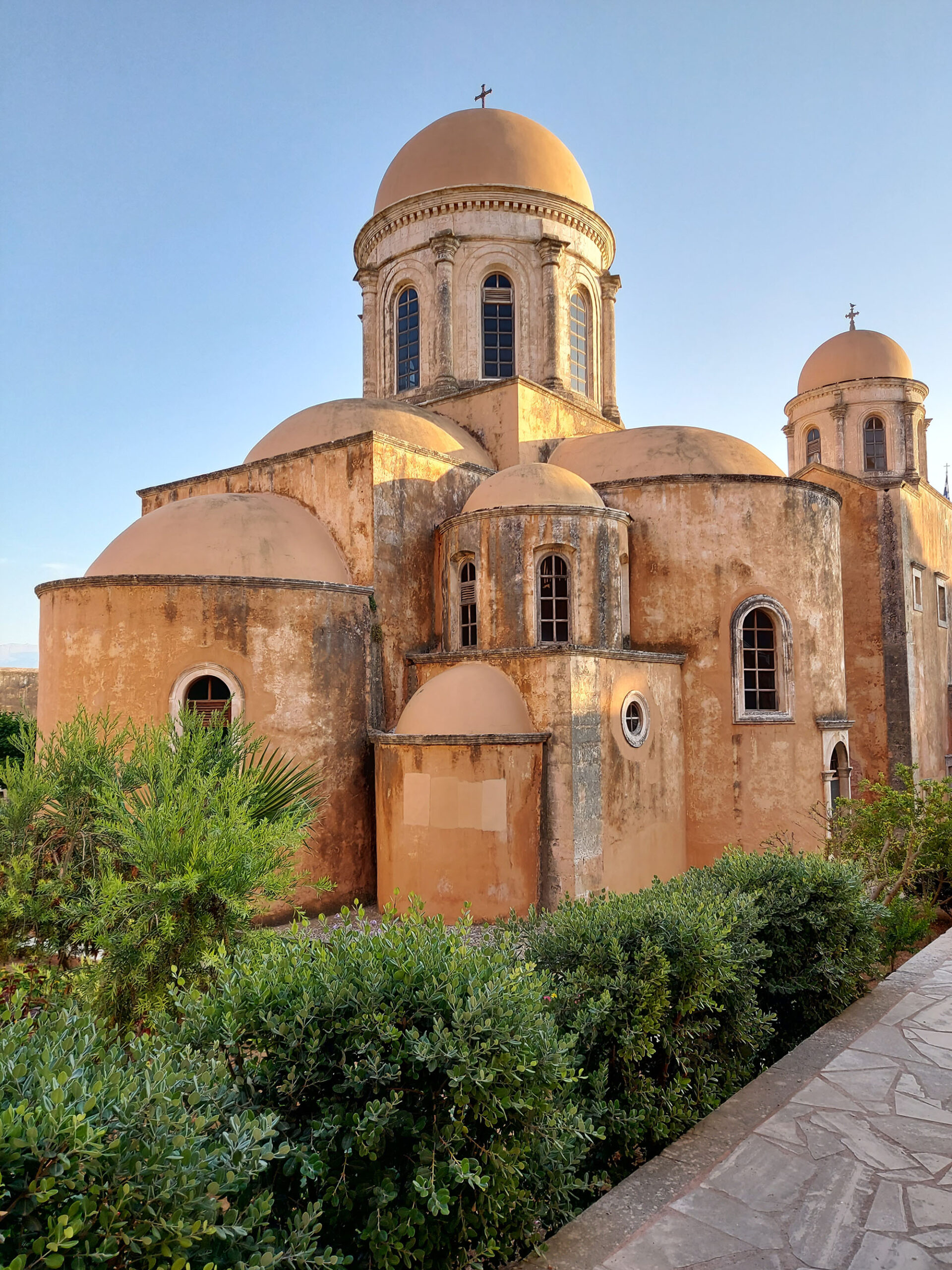
The Renaissance style includes doors with a triangle-shaped roof and old-fashioned Doric columns on the sides. When you look at Renaissance churches, you might feel like you’re walking into an old pagan temple instead of a Christian church.
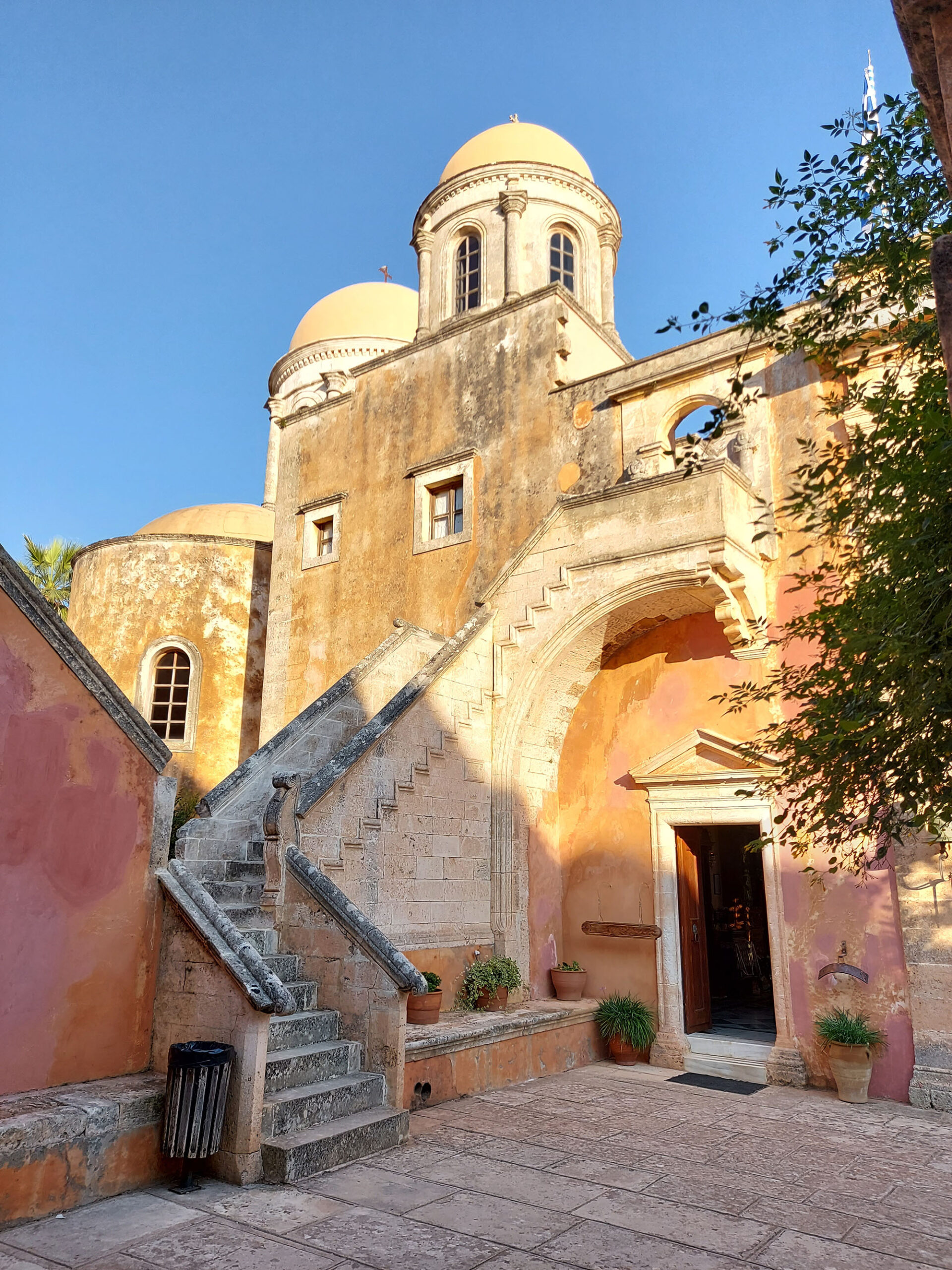
There are also monumental steps on the side.
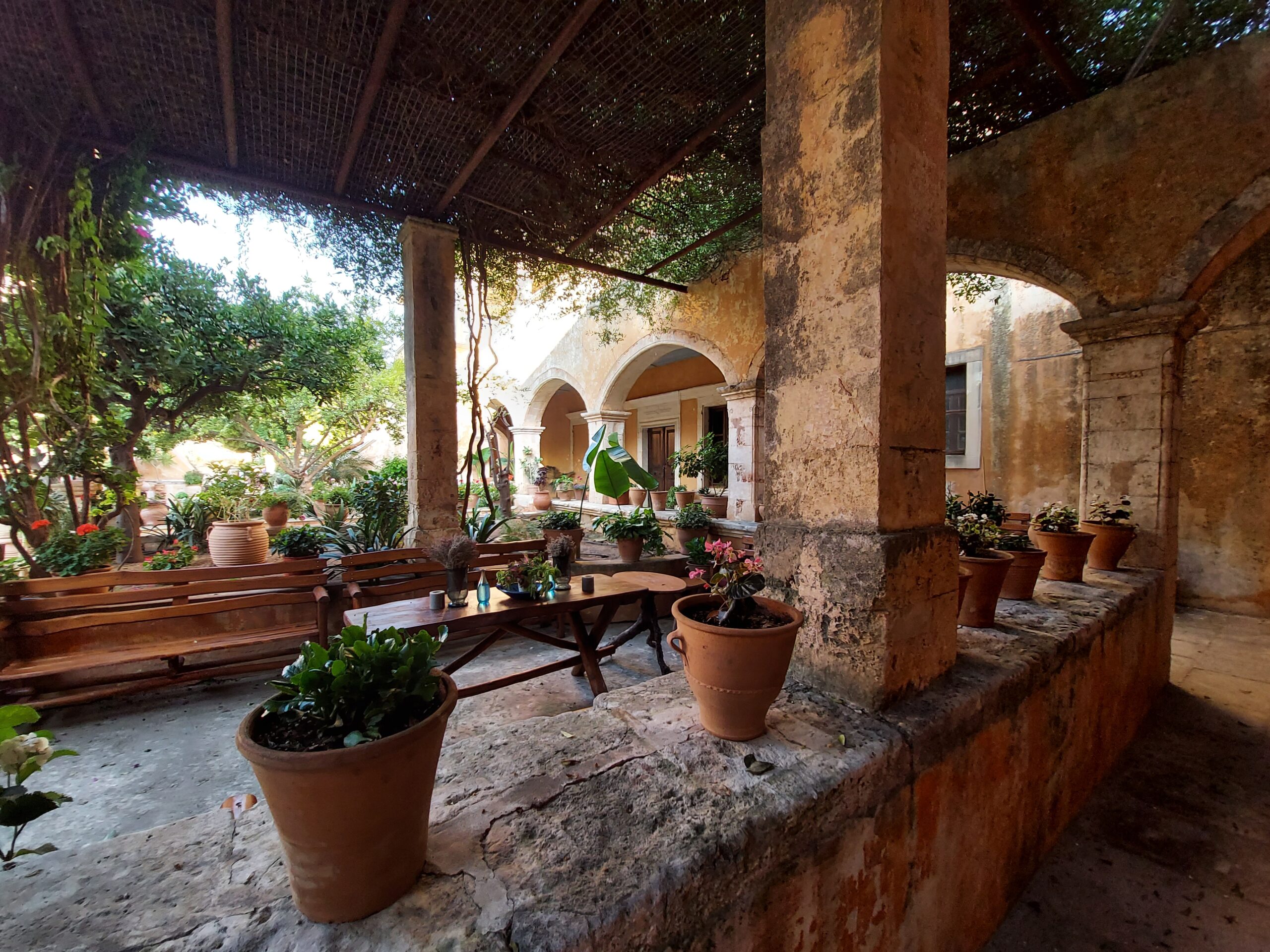
The monastery courtyard, known as the cloister, features a garden and arched paths, making it unique to Orthodox monasteries.
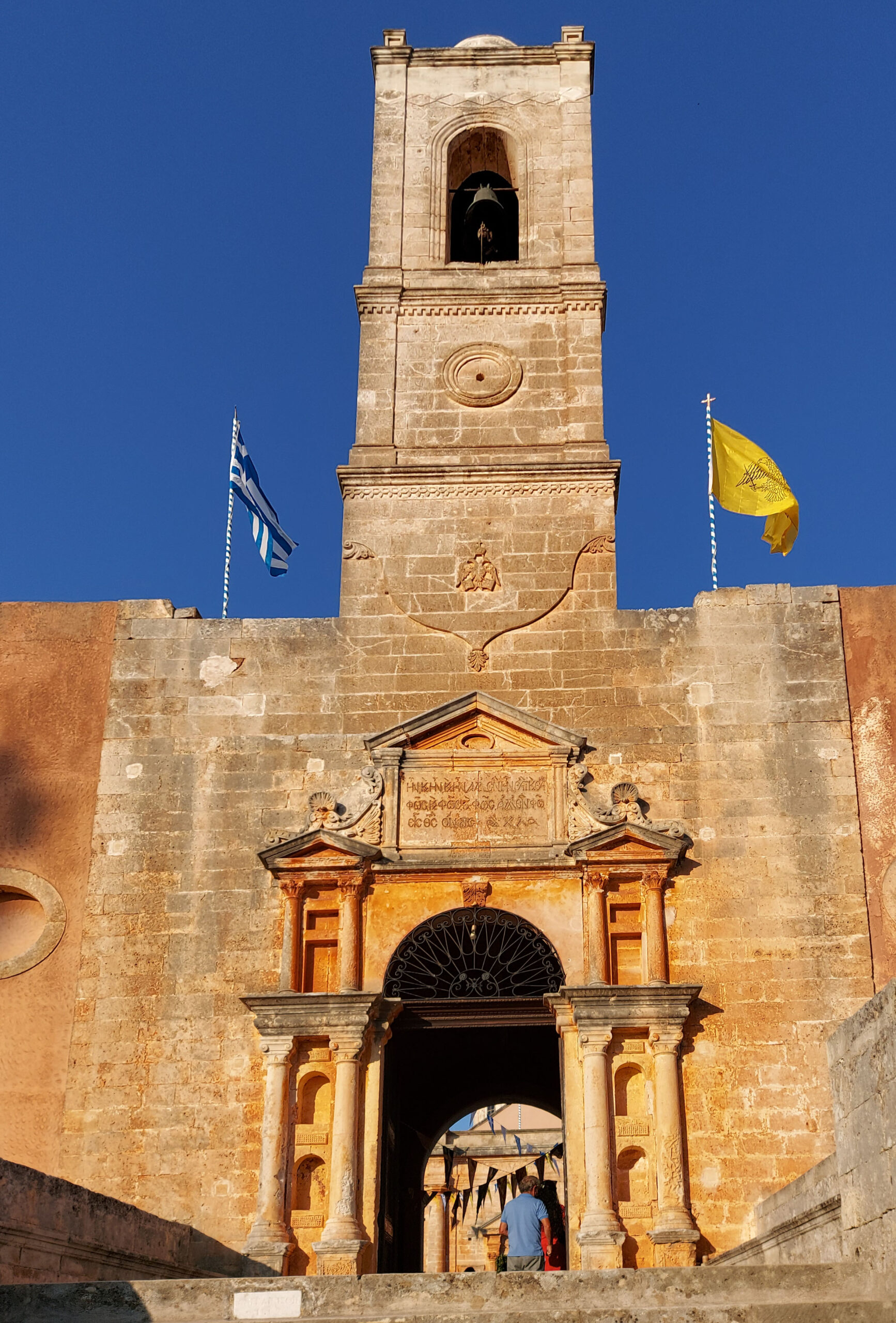
The monastery’s main entrance, designed in the Renaissance style, features antique columns and a triangular gable that resembles an ancient temple.
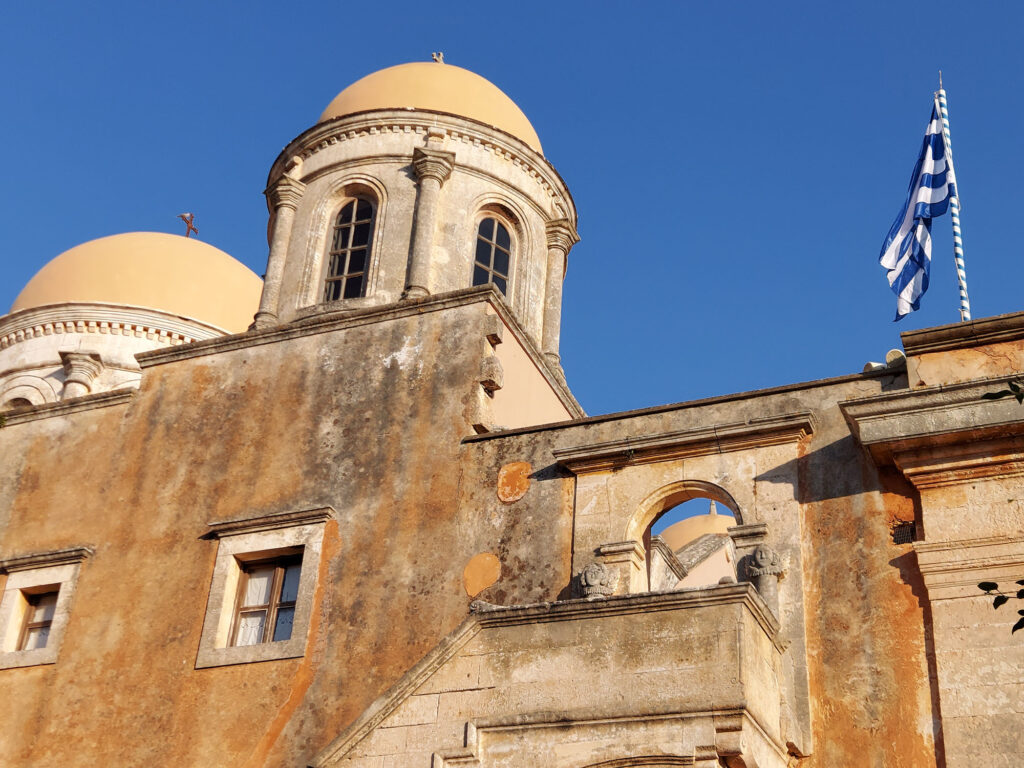
The dome sits on top of a base known as a tambour and is decorated with old columns.
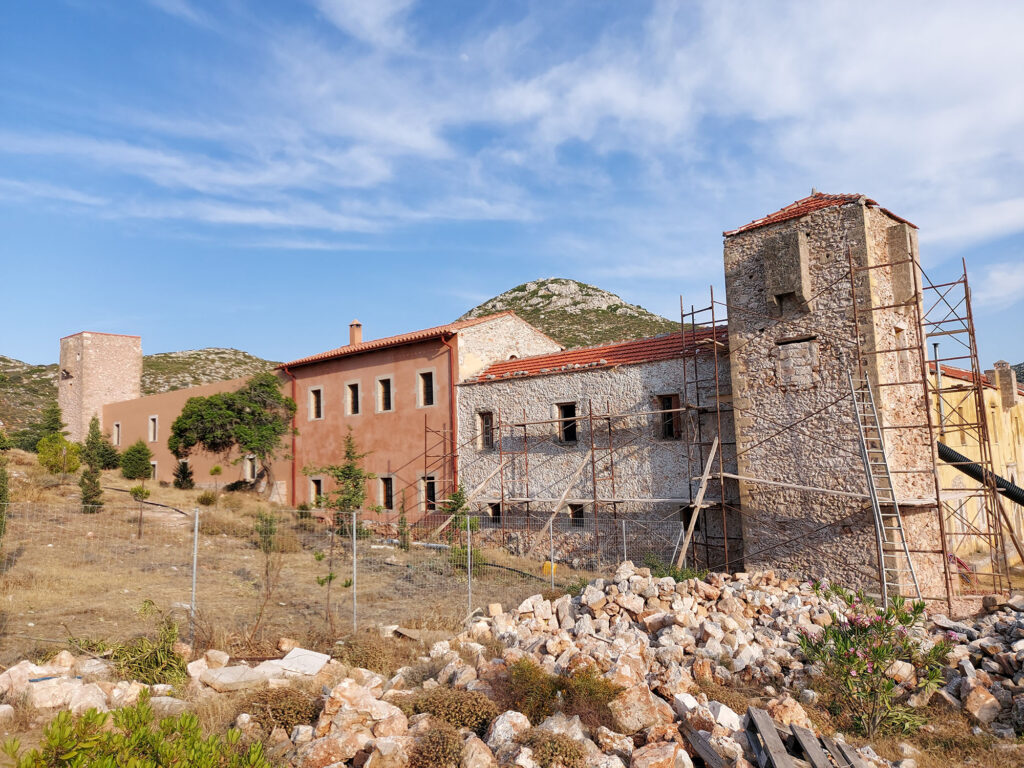
Not far from Agia Triada, there is another Orthodox monastery called Gouverneto. It was constructed in the 16th century and is known as the oldest monastery in Crete. The monastery looks like a fortress with towers at the ends. The monks from the nearby Katoliko monastery built this fortress to protect themselves from attacks by sea pirates since their monastery was close to the sea coast.
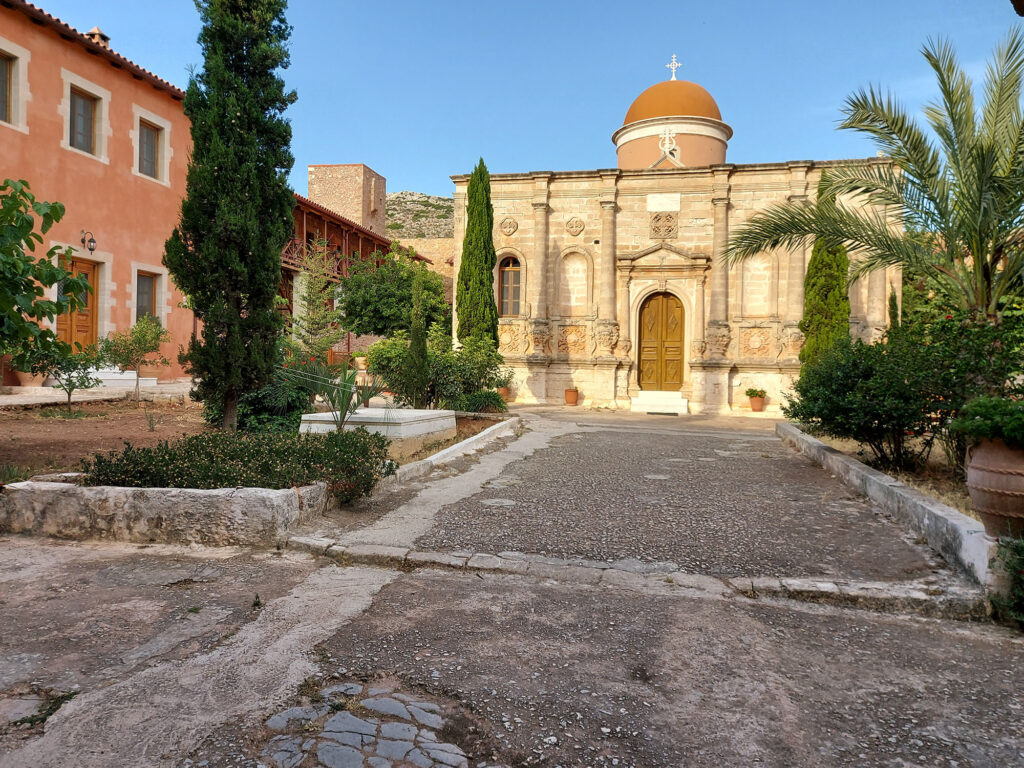
Just like Agia Triada, the monastery was constructed during the Renaissance period. The front of the church has a portal adorned with old columns, and there is a triangular gable above the entrance.
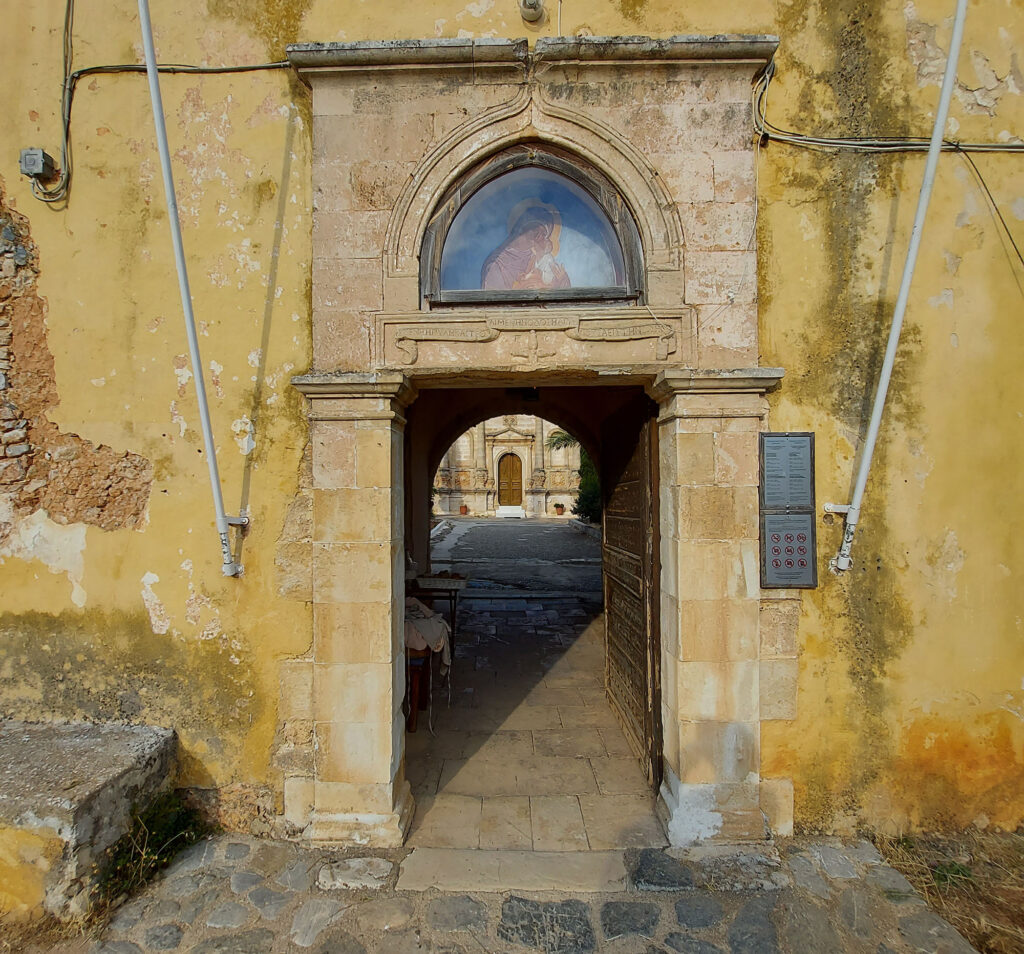
A broken arch above the main entrance of the monastery shows Islamic art style, and inside a niche, there is a painting of the Virgin Mary with Christ.
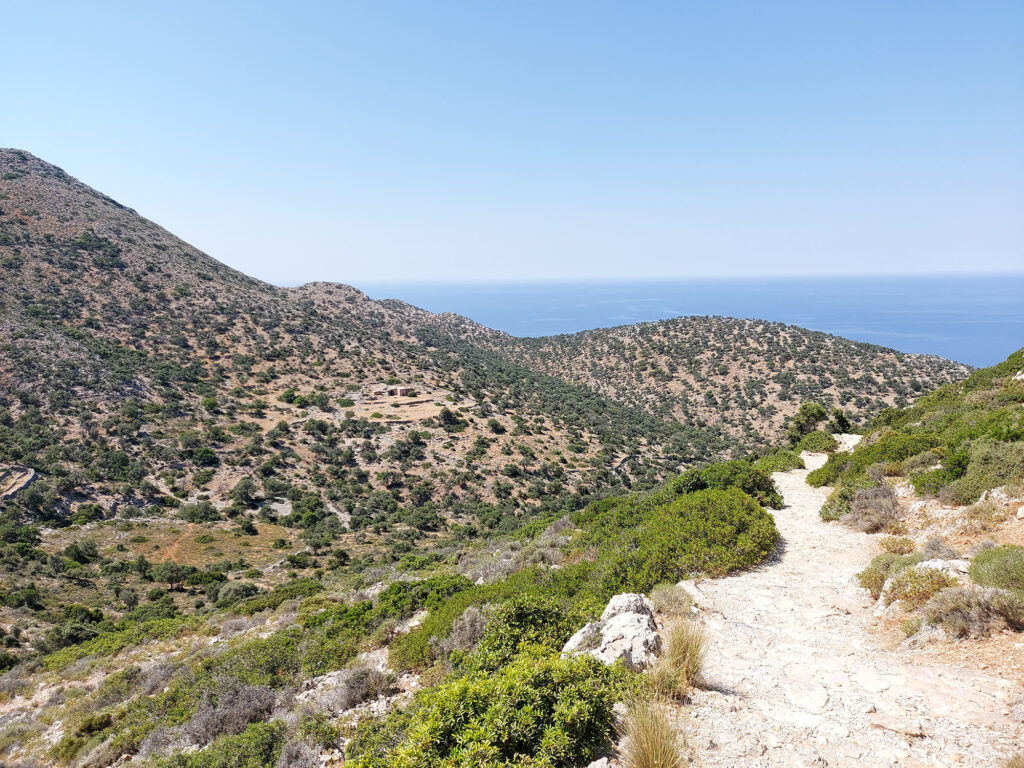
A narrow hiking trail leads from Gouverneto Monastery to the Catholic Monastery.
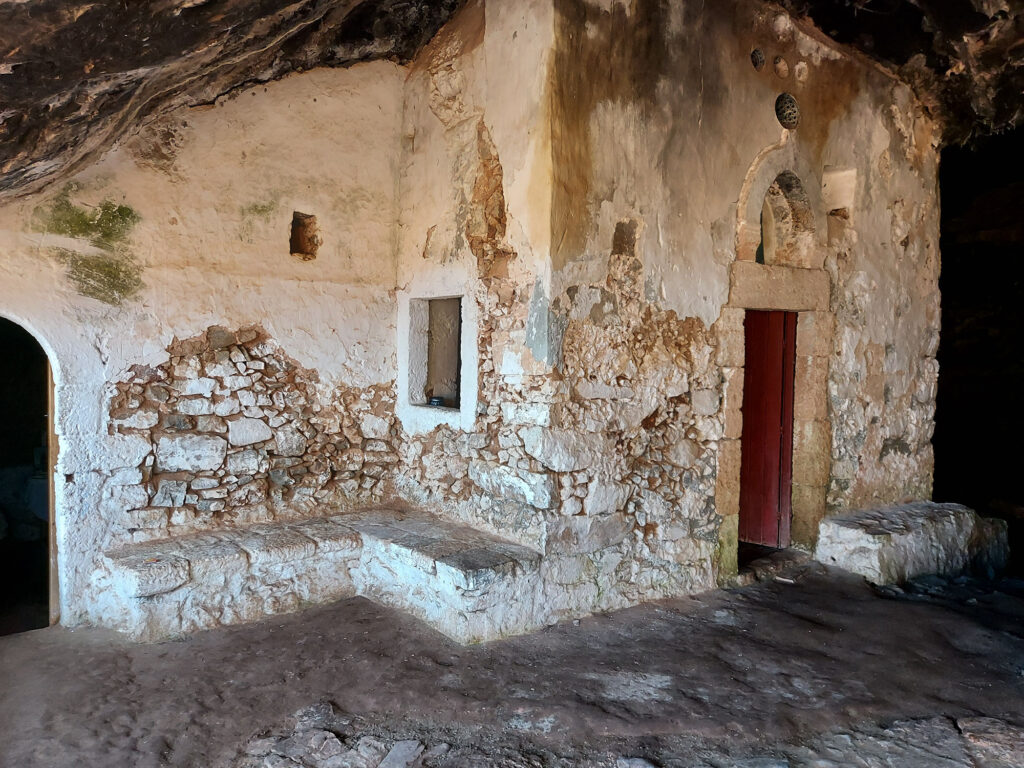
Along the way, you come across the remains of the monastery in the Arkudospilios cave.
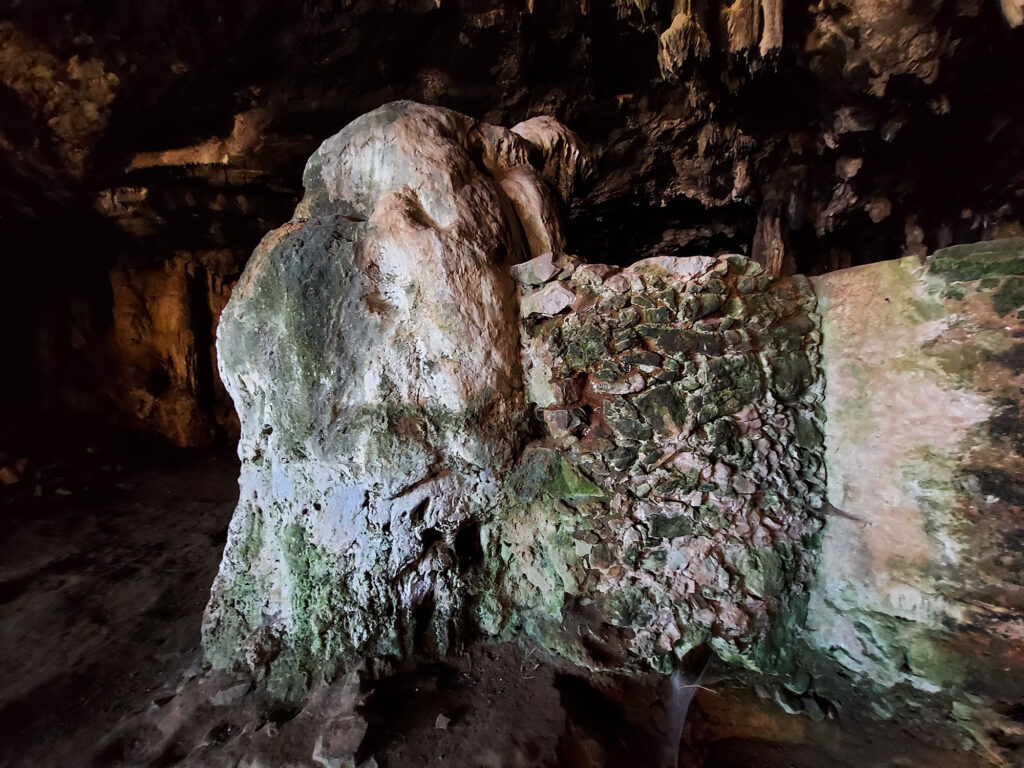
Arkudospilios is called bear cave in Greek because the stalagmite looks like a bear drinking water. According to the legend, there was a cave bear that used to drink water droplets falling from the stalactites. When some thirsty monks found the cave, they prayed to the Mother of God for help. She granted their wish by turning the bear into a stone, allowing the monks to drink water freely.
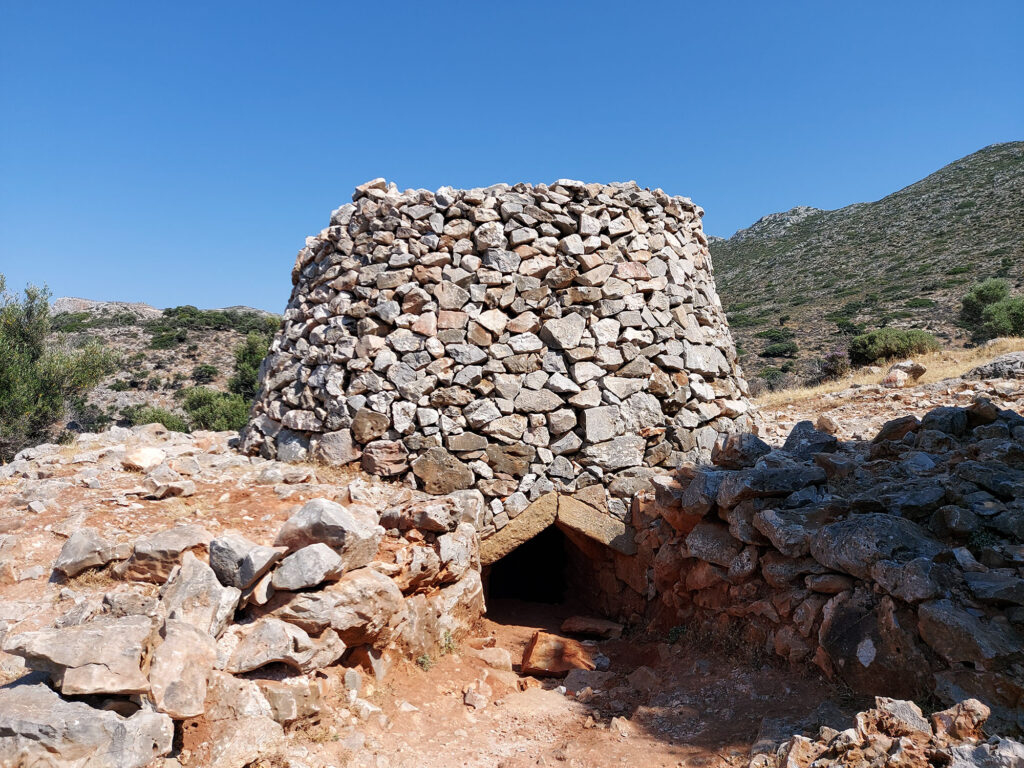
As you continue walking along the path, you will find another mitato – a structure where cheese was made and kept.
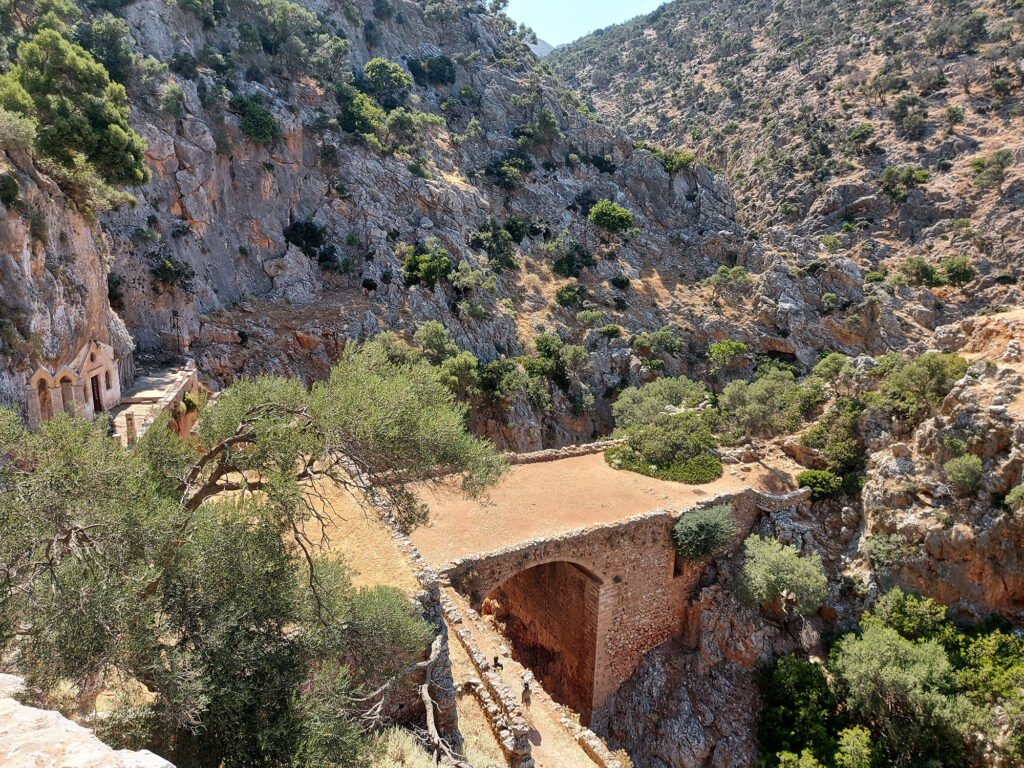
Deep in the Avlaki canyon, there is an abandoned Katoliko monastery. It is believed that the monks left the monastery due to frequent pirate attacks and later built the Gouverneto Monastery.
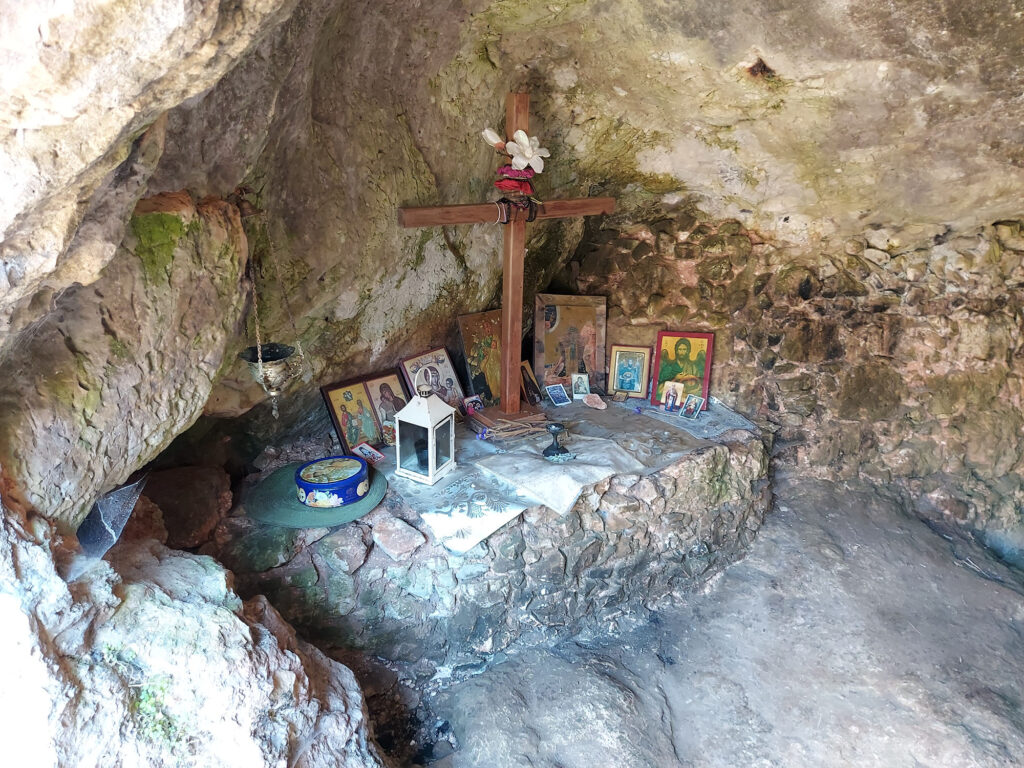
According to legend, the monastery was built in the 11th century by Jovan Kenos, who lived a hermit life in a cave, which is why in some historical sources he is refered to as Jovan the Hermit. He should not be confused with John the Hermit from the 5th century, who lived in a cell for 50 years without contact with the outside world. The monastery had a large number of cells where hermit monks lived, isolated from everyone, completely devoted to prayer and contemplation.
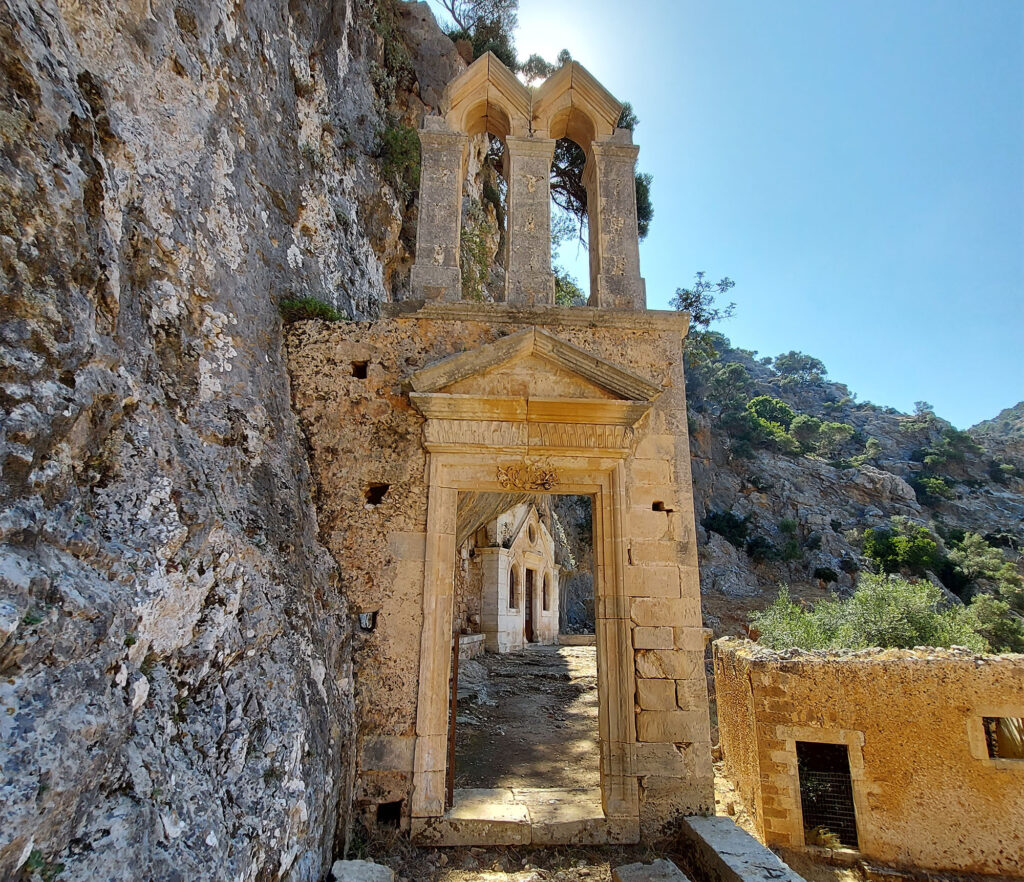
View of the entrance to the church with the bell tower.
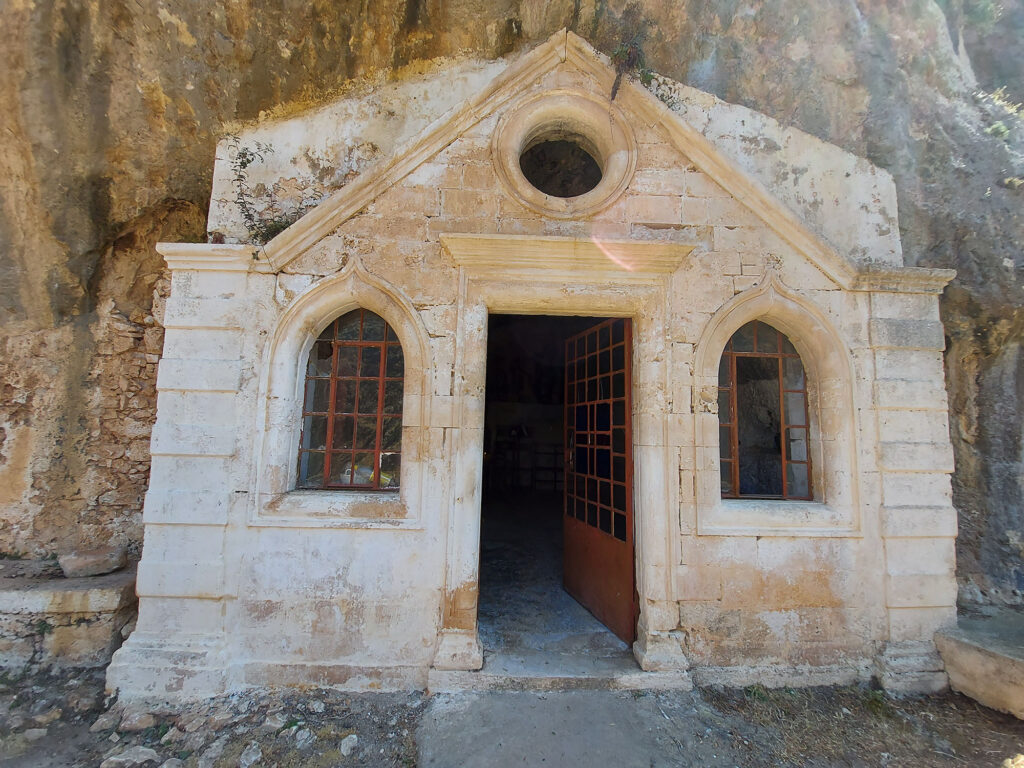
The church was built inside a rock.
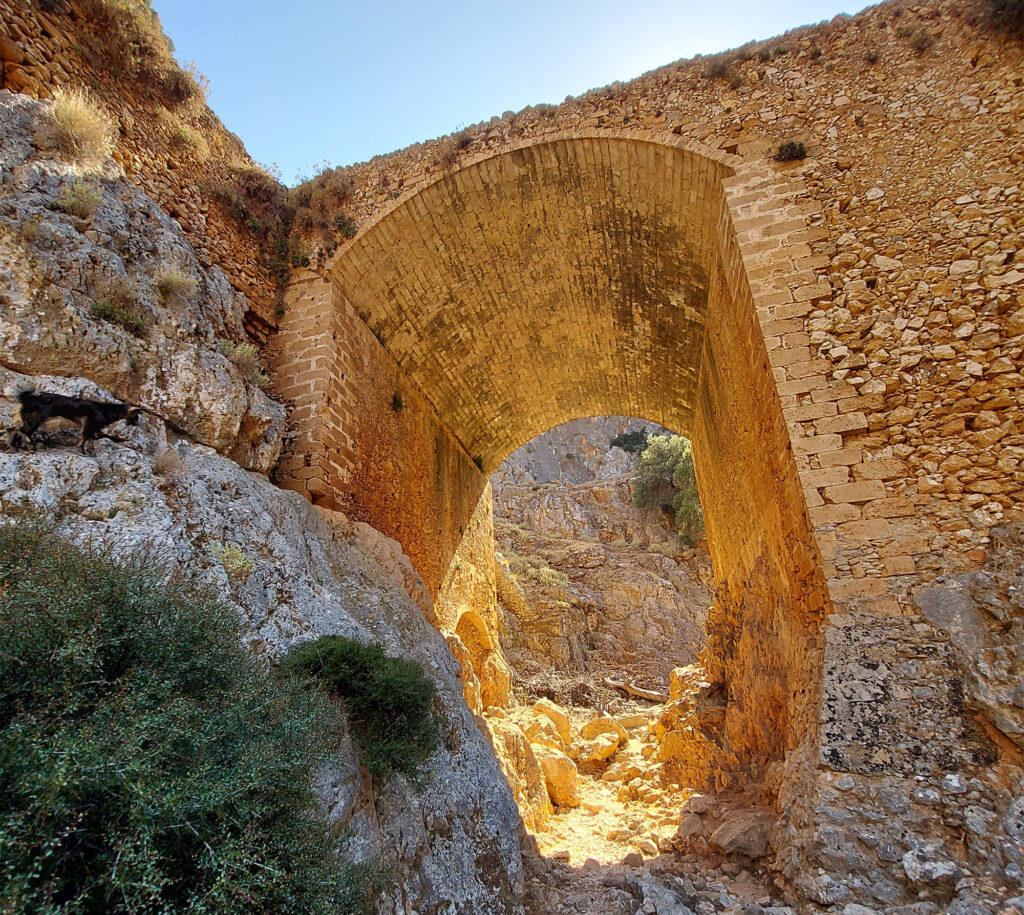
A great bridge spans over the Avlaki canyon.
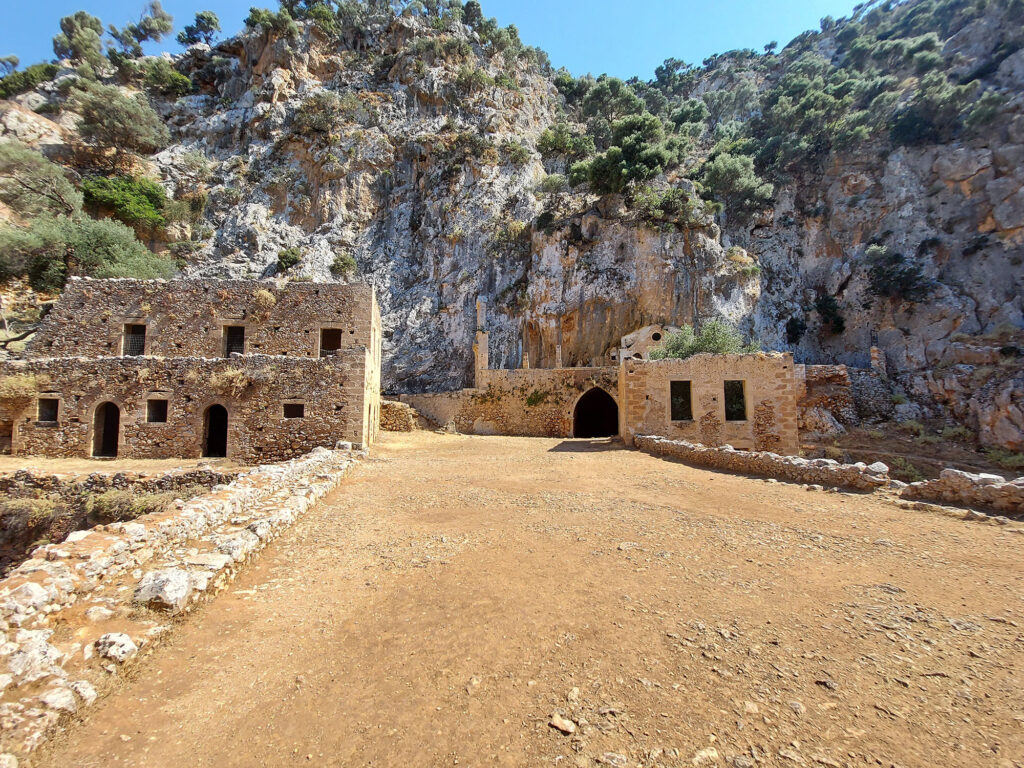
Buildings that served as warehouses have been preserved above the bridge.
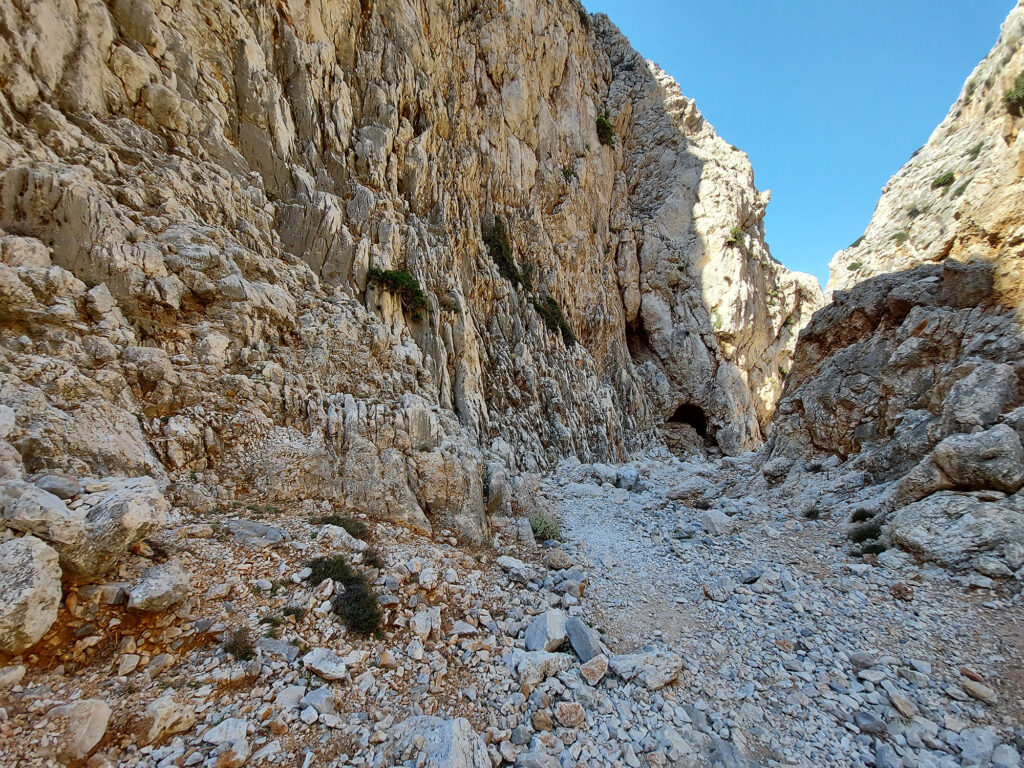
Avlaki Canyon leads to…
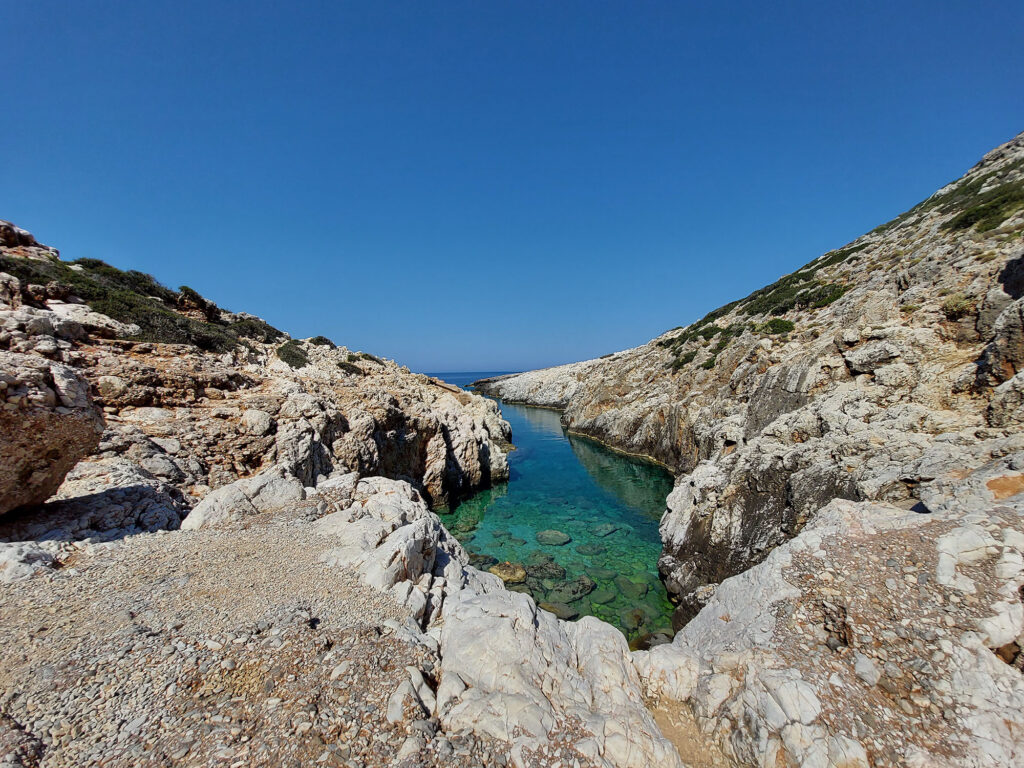
….Katholiko beach.
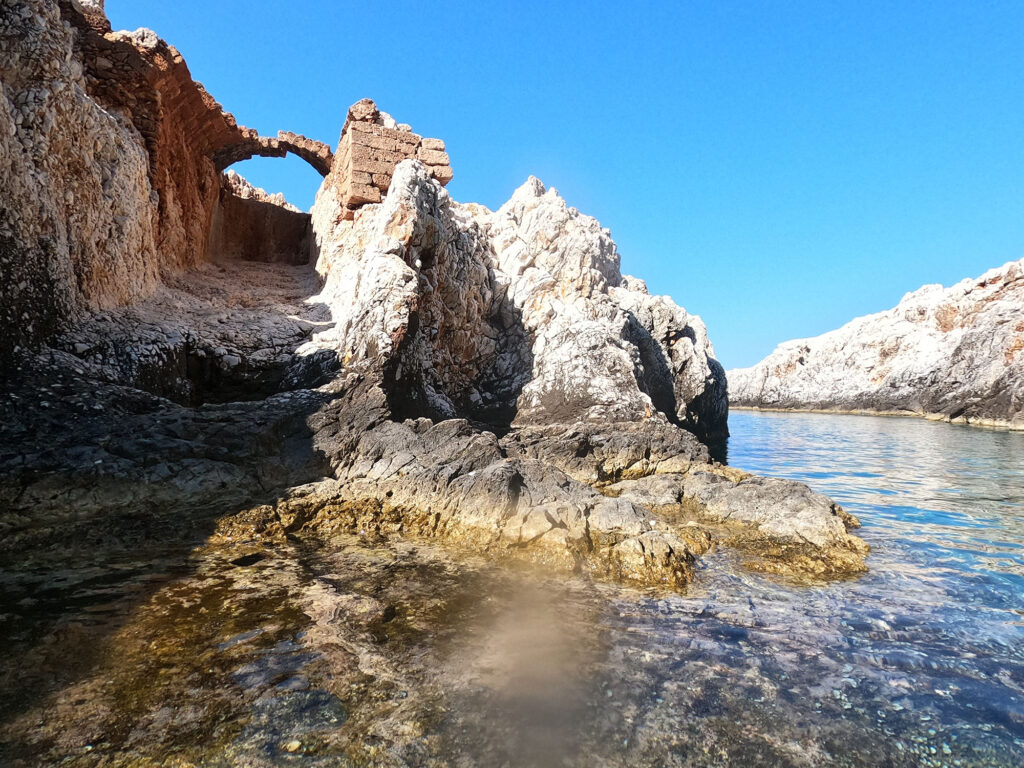
In the past, the monks used the beach as a harbor.
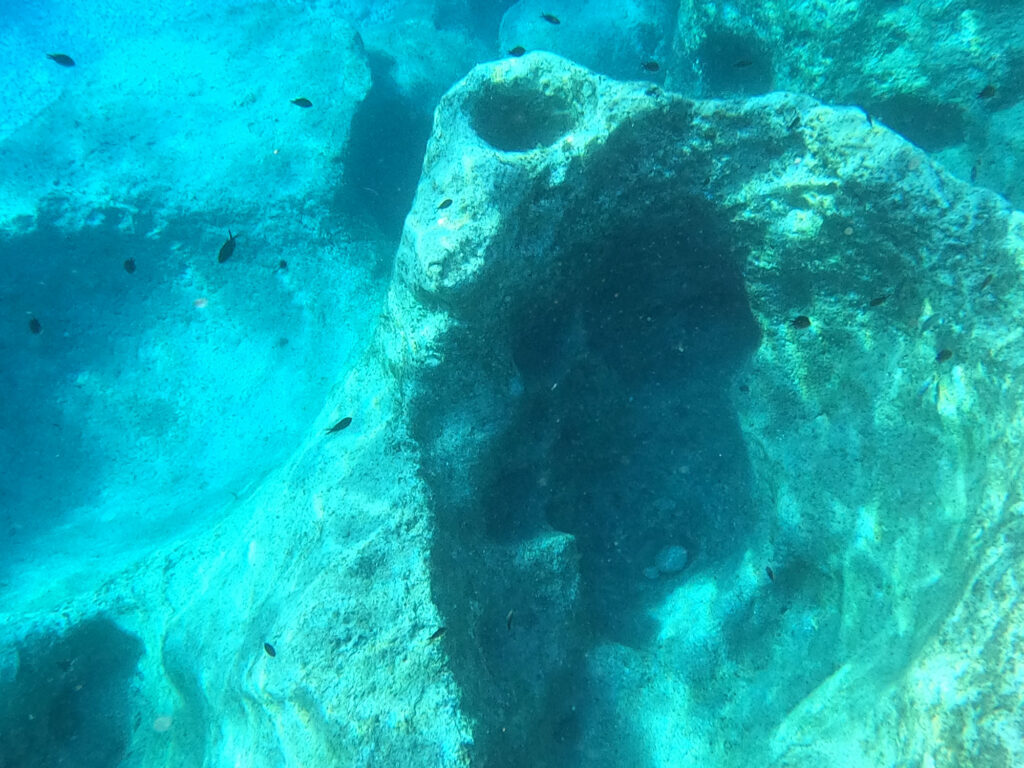
Nature carved unusual hollow rocks in the sea.
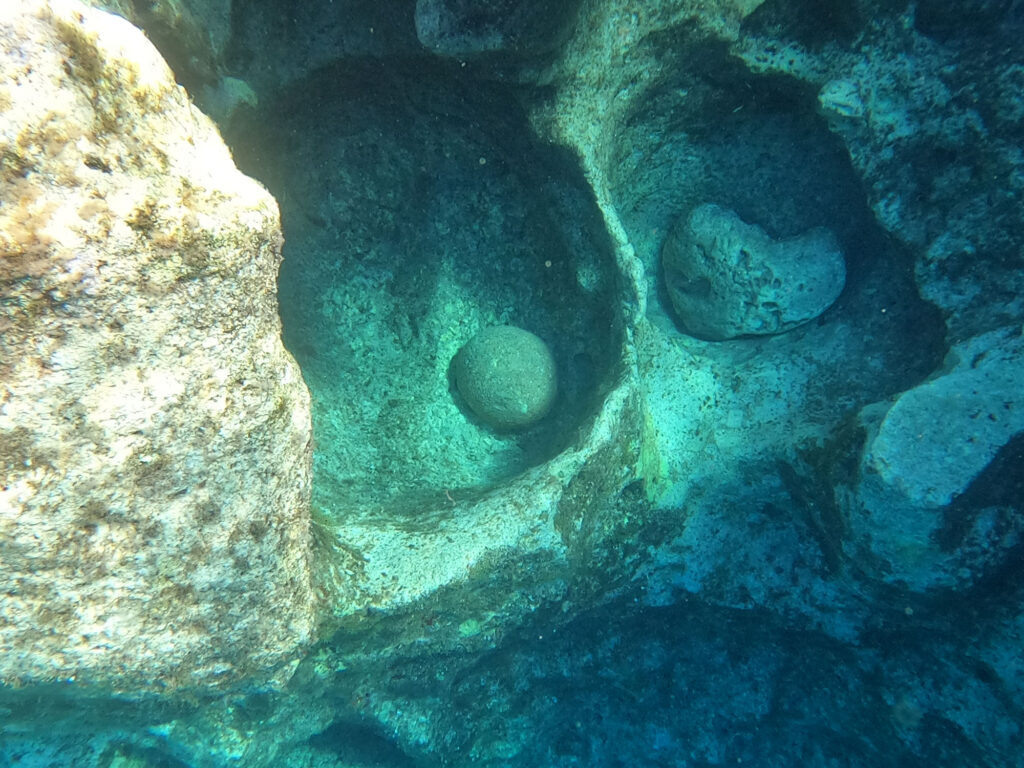
There are also natural wells, filled with pebbles.
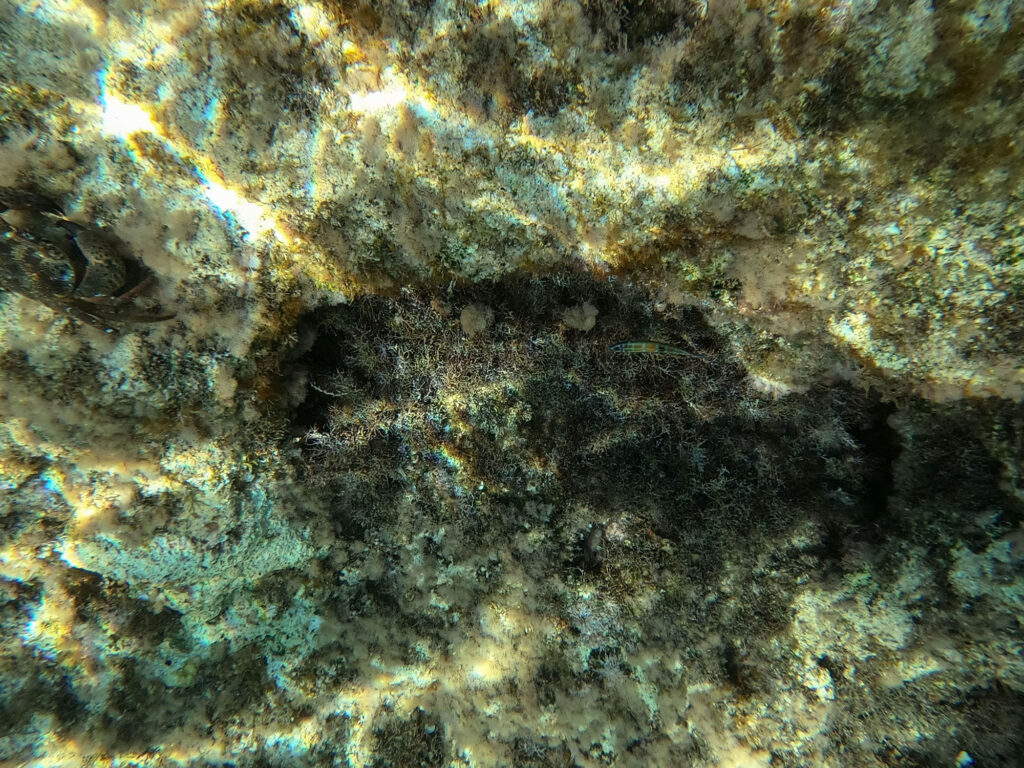
A large crab walked into the upper left frame.
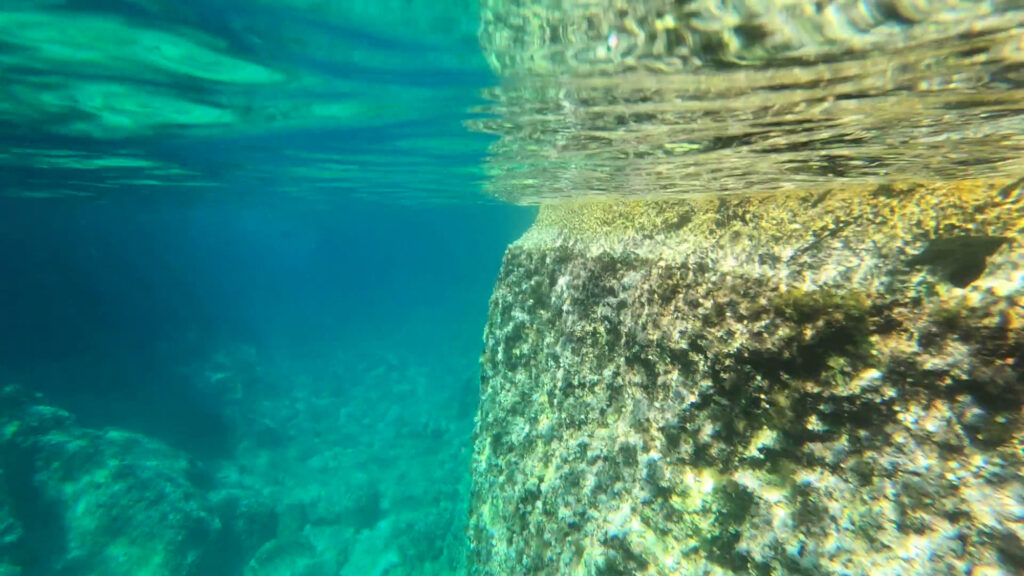
The river Avlaki carved out the underwater canyon. When the land receded and the sea came in, the canyon became completely submerged underwater.
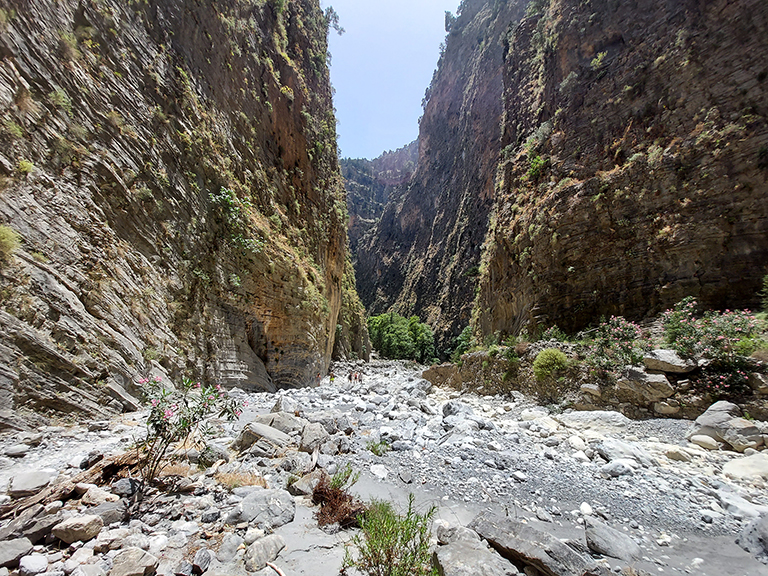
The Samaria Canyon in Crete is a remarkable natural formation characterized by steep descents, unique rock formations, and diver
Read More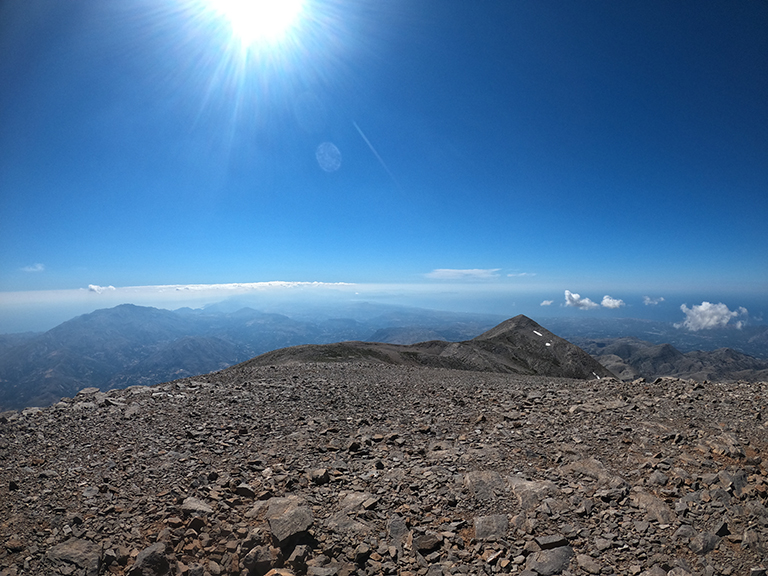
Mount Ida, the highest peak in Crete at 2,456 meters, holds significant mythological importance as the birthplace of Zeus, who w
Read More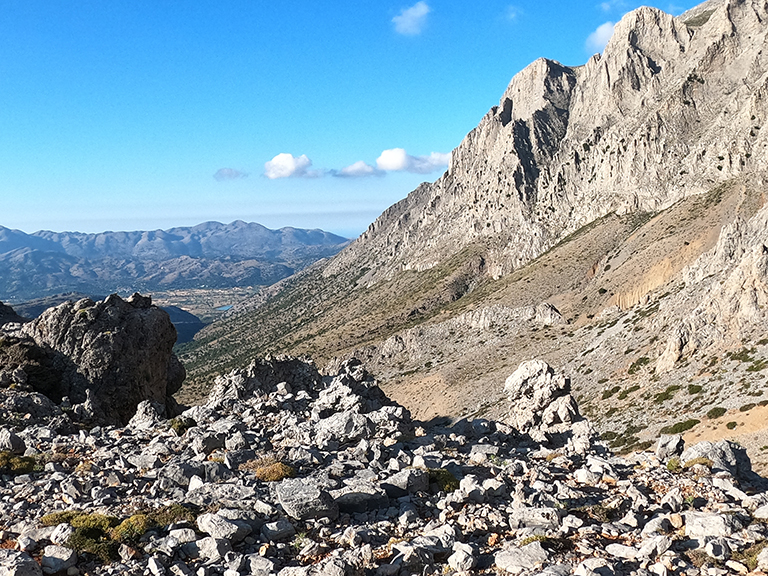
Mount Dikti, a lesser-visited mountain in eastern Crete, offers a unique hiking experience with its limestone composition and mo
Read More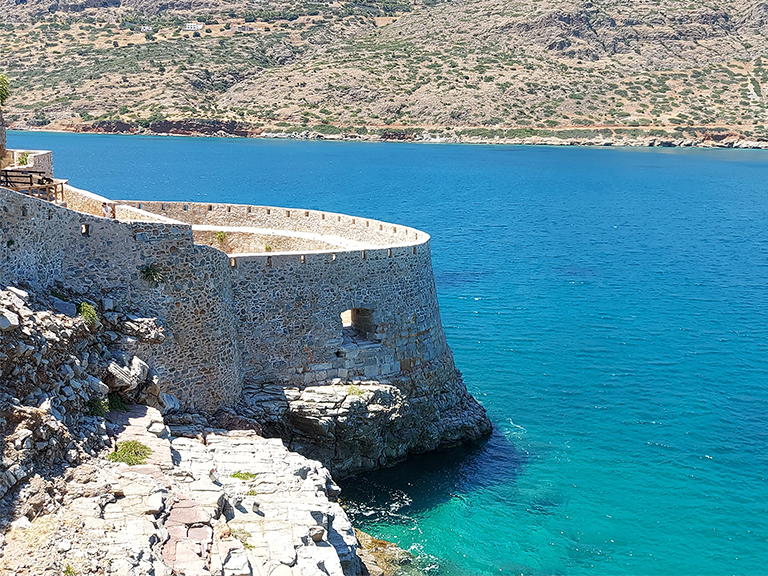
Spinalonga is a Venetian fortress built in the 16th century on a small island in the Gulf of Elounda, Crete. The fortress was bu
Read More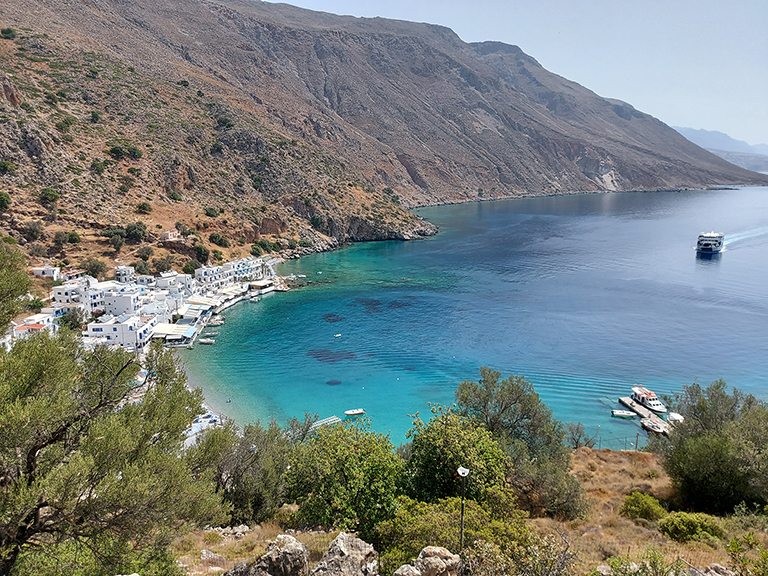
Agios Rumeli is a picturesque seaside town on the coast of the Mediterranean Sea in Crete. The town is a home to several hiking
Read More